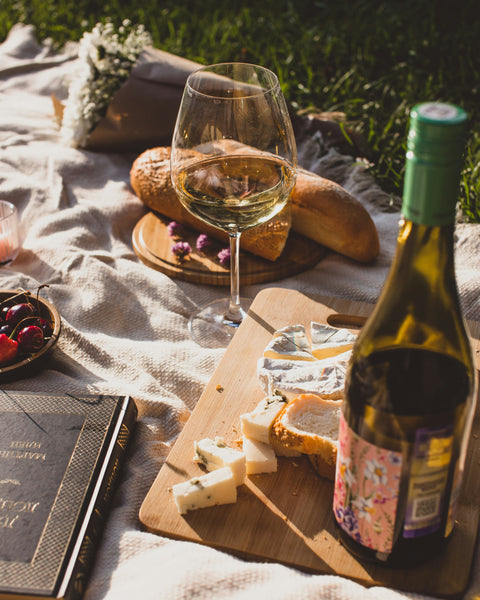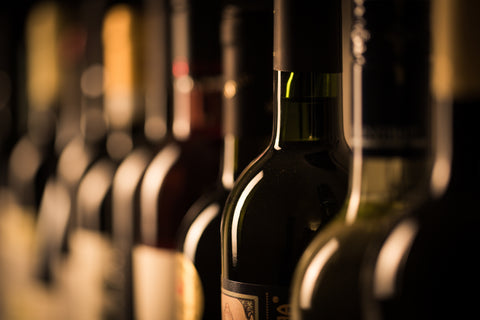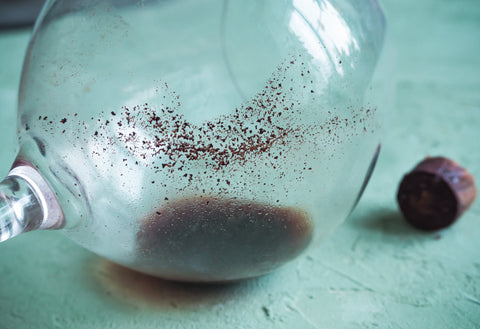“My wife was the main driver behind it,” says Niels Udsen of Castoro Cellars’ conversion to all organic farming. In 1983, right after Paso Robles became an AVA, Niels and his wife, Bimmer, took a leap of faith when they founded their small winery. Castoro means beaver in Italian and is Niels’ lifelong nickname. “We were the thirteenth winery in Paso Robles,” says Niels. “I never thought there would be over 300 wineries here. We are now the largest grower of organic grapes in Paso Robles. One hundred percent of our vineyards are farmed organically and are SIP certified (Sustainability in Practice, a nationwide sustainability program). We want a healthy environment for our employees, our family, the grapes, and the wines.
The Beginning
We’ve always grown our own vegetables organically. We began growing grapes right after we started our winery, and the first vineyard we planted was around our home. Bimmer said ‘We are farming this organically, right? Because we live here.’ I said, I guess that makes sense. I grew up in a family that was involved in seed production, and I always worked out in the fields every summer, learning farming. We began farming the vineyard around our home organically. It was probably a little more expensive to farm than some of the other vineyards we acquired. As we grew, I started thinking that our guests would probably be happy to know that the vineyard surrounding the tasting room was farmed organically. So, we converted that vineyard next. Our winemaking facility is at Stone’s Throw vineyard. I had the same thought, ‘Hey, we all work here every day, it would be nice to know that it is all organic.’ That’s when we began farming organically at a larger scale.
Isn’t Organic Farming More Expensive?
At first, it was substantially more expensive. But now that we’ve converted all 1,600 acres to organic farming and they are all certified, we’ve discovered ways of dealing with things differently and paying more attention to our farming. Our farming team embraced it. We started with the flattest, squarest farm sites. When we were creating our budget for the next year, the farming team advised it was actually not more expensive to farm organically. They’d figured it out. I thought that maybe it was because we’d chosen the easy places to convert, so I proposed converting more difficult ones. The team said why don’t we just convert it all, as it is really hard to keep it separate. And Bimmer and I were all in on that. Now that we’ve been doing it for so long, we don’t find it to be more expensive. I think the plants are healthier and we’ve learned many things about organic farming.
The Process of Converting
One of the first things we did was get rid of pre-emergent weed control. It is not healthy for the vines. It smells, and if I can smell it, its going in my nose. We learned that it gets into plants and grapes, and it inhibits the ripening of the berries themselves. We also discovered it can inhibit the yeast fermentation at the winery. Those are two really good reasons right there to eliminate it, as it was messing with wine quality. Also, in 2021, when the price of oil skyrocketed, everyone who was using synthetic fertilizer and pesticides saw their costs jump tremendously. But it didn’t affect us at all.
I think the biggest thing is that we just pay more attention. You have to do everything at the right time. You can’t just set up a recipe or a schedule and continue. For example, if we notice a hot spot of leafhoppers somewhere, we will just treat that spot, rather than the whole field. We use drones that release beneficial insects in the areas they are needed. It works. We pinpoint areas where we need to do things. We have mapping of our fields now, and we can see from above where there is a water or fertilizer deficiency. That information is loaded into our spray rig or fertilizer system, and when it gets to those areas it will increase application to just those areas. We may be adding one ton of compost per acre, but when we get to those areas that need more, we’ll add two. There is some pretty cool technology out there.
With organic farming, one of the big problems is the use of manual labor. If you haven’t figured out how to suppress weeds mechanically, you’ll have large crews of people hoeing, which is very expensive. We use in-row tilling systems to deal with weeds. It’s super clean. But the big point is, by doing it this way, the earth is much more alive. You can see the vibrancy in the vines, the soil, and the cover crops in between the rows. Water penetration is much better where the ground has had cover crops and open tillage.
One of the big expenses to converting to organic farming is the investment in equipment, like our in-row tilling system. In the beginning, weed management was a big expense. But now, our costs aren’t as high as everyone else’s. Harvesting is also a big expense if you do it by hand, but we are doing it mostly mechanically now.
We’ve also learned that we can live with a little more messiness, a little more life in our vineyards. We’re finding that leaving some weeds is a way to house beneficial insects.
What’s Next: Biodynamic Farming
We have biodynamic consultants, and we have roughly 500 acres where we pretty much follow all the rules of biodynamic farming. We use the biodynamic principals in the Whale Rock Vineyard. Our Pine Rock Vineyard was already Demeter Certified (the certification program for Biodynamic Farming) when we bought it. We just kept that going.
Biodynamic is a different philosophy in farming. It brings a lot of life into the vineyards. It treats each vineyard as its own organism, and you work to build up soil health, just like you want to build up gut health. We are working the probiotics of earth, with the goal of getting to the point where we are not needing to add a lot of fertilizers because we are creating balance. It’s the next step towards regenerative farming, where the organism is alive and taking care of itself and not needing all these inputs all of the time. On a smaller scale, in our home garden, we notice that there are days that are better for planting, and days when you just shouldn’t do anything. When we transplant, we do notice that, for whatever reason, if we transplant on a non-transplanting day, the plants don’t do as well as when we transplant on ‘good’ days. Don’t ask me why, or how they figured that out. We try to pick the fruit on days that they say is optimal for picking fruit, because perhaps the flavors are more vibrant on those days, or perhaps the sugars are better. You can’t always follow everything, but we are trying to follow the general practices.
The Naysayers
When we first got into organic farming, we were a little bit skeptical of whether we could do it. Our biggest fear was that we get some kind of disease or pest, and we’d have get out of organic certification to fix it. But because we converted everything, even if that happened, we would have some certified vineyards. And it has never come up even once.
People who are afraid of organic farming say it will decrease yields or that the vines won’t last as long. I’m like, ‘Where did you get that information from? That farmer may be growing a vine that would have withered whether he organically farmed or not.’ It hasn’t affected our yields in any respect. Most vineyards in Paso Robles are not high producing unless you are really watering the ground, I think our quality and yields are right where they should be.
Beyond Farming—Maximizing Sun Power
More and more, we are relying on the sun to do the work for us. The winery has its own solar system. We have three wells that run directly from solar. The sun comes up and the 60-horsepower motor can run all day long, which it pretty amazing. They are remote sites, so it was going to be expensive, and it was going to take a couple of years, minimum, to tie them into the grid. But we put in 150 solar panels and wired them directly to a motor, and we had it going in two months. We didn’t have to pay for all the grid-tie in hardware. It’s been going on for a couple of years now, and its amazing. We still have some wells on the site that are powered electrically, so if we need to water at night, we can.
We are hoping to get solar-powered, autonomous tractors this spring, so they can be driverless or not. They learn your vines, and then one guy with an iPad can run two or three tractors at once. Depending on the amount of work, and the hills, we are going to have battery caddies so we can just swap out the batteries and keep going. The batteries will charge with the solar system.
Low Intervention in the Winery
We are not making ‘organic wine,’ as we may use up to 100 parts per mm for our SO2 to prevent spoilage. We turned our winery into an organic processer, so we can carry that through onto the label. Because of different rules, the same wines we make here that are labeled ‘made with organic grapes’ certify as organic in European Union. We are sending wine to Sweden, Denmark, and Norway that are listed as organic wines.
Spreading the Knowledge
We are the largest grower of organic grapes in the Paso Robles appellation, by far. We’d be happy if we were the smallest. We are doing whatever we can to help anyone who wants to convert to organic farming. We have a meet-up once a month to answer questions. The crowd has grown to 50 to 75 people.
Better Farming Makes Better Wines
By being organic, we’ve seen the scores on our wines improve. Like my wife says, it not like we just learned how to make wine, it’s that the fruit keeps getting better and better. It’s a really great feeling to have.”





Comments (0)
There are no comments for this article. Be the first one to leave a message!